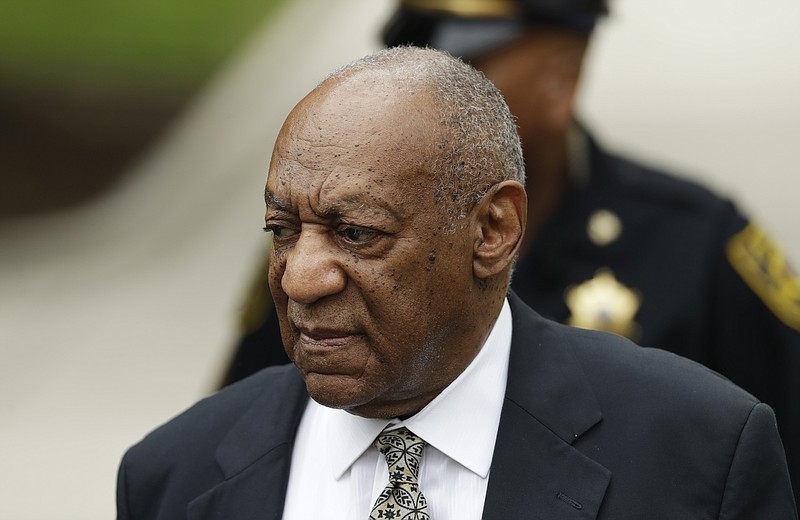After three days, the jury in entertainer Bill Cosby's sex assault trial outside of Philadelphia has been unable to reach a verdict on three counts of aggravated indecent assault. Deliberations were set to resume Thursday.
The jury must reach a unanimous decision. If the jury tells the judge they are deadlocked, he will have considerable flexibility under Pennsylvania law in how to respond.
------
Q: How long can deliberations go?
A: It's rare that juries go for more than a couple days, according to veteran jury consultant Art Patterson, a social psychologist with DecisionQuest, a New York-based trial consulting firm.
The Cosby jurors were picked 300 miles away in Pittsburgh and have been sequestered in the Philadelphia suburbs during the trial.
"Hung juries aren't that common because jurors want to reach a verdict, and they usually get to a verdict," Patterson said.
If deliberations drag on, that's usually because either the panel is divided or, in complex cases, they are reviewing voluminous amounts of evidence. The Cosby jury got the case on the sixth day of the trial.
"People usually have their minds pretty well made up early in the deliberations process," Patterson said.
Philadelphia-based jury consultant Melissa M. Gomez said: "There's a good chance that there's polarizations of opinion on either end, and they want to go through evidence carefully, simultaneously -- those things are happening at once."
------
Q: What happens if they tell the judge they are deadlocked?
A: In nearly all cases, a judge would tell them to keep at it, according to Pennsylvania criminal defense lawyer Ed Paskey, "as long as it's not going to do violence to their conscience or their individual opinions."
Paskey, a former prosecutor with nearly 100 jury trials under his belt, said he has seen a judge tell jurors three times to resume deliberations, and in that case they did produce a conviction in a sexual assault case.
"It's a very, very rare occasion that a judge is going to let a jury off the hook on the first indication they're hopelessly deadlocked," Paskey said. "If you start to get into three or four full days, then there is going to be some concern after that point that perhaps a jury is not going to be able to reach a verdict."
Pittsburgh defense attorney Bernard Tully, a former prosecutor, said judges usually encourage jurors facing an impasse to try again, respecting one another's opinions, before they are willing to declare a mistrial.
"The language, a lot of times, that triggers this (is) if they come back and say, 'We're hopelessly deadlocked and there's no reasonable amount of additional deliberations that would cause us to change our views,'" Tully said. "At that point, in all likelihood, the judge would declare a mistrial."
------
Q: Short of a mistrial, can the judge take other action?
A: Patterson said judges have discretion to remove individual jurors under certain conditions.
"If the other jurors say to the judge, one juror will not deliberate, will not discuss facts, reasons, will not participate, judges have actually removed jurors. That's a very extreme move, but it can be done," he said.
Tully said the judge would need "some foundation or basis for that radical step," more than simply hearing that someone has dug in their heels.
"Jurors are not required to give up a real belief just to reach a verdict," Tully said.
------
Q: What happens to Cosby if there's a hung jury?
A: The charges would stand. Prosecutors would get four months to decide whether to retry the case or abandon it. Tully said Cosby would likely get the same bail conditions -- he is free on $1 million bond -- as he has attended all the hearings.
------
Q: How do prosecutors decide whether to retry a case that produced a hung jury?
A: Patterson said the factors include prosecutors' own analysis of the strength of the evidence, how high-profile the case is and the cost to go through another trial.
"There's a phrase that's often repeated, that the evidence rarely gets any better after the first trial for the prosecution," Paskey said. He said prosecutors also factor in the willingness of victims to go through a trial again.
Prosecutors can ask the jurors who could not reach a verdict if they will discuss what occurred. If they give the district attorney the sense there were several people willing to acquit, that would complicate a decision to retry him, Tully said.
"I would think they'd listen very heavily to what the jurors had to say, if they'll talk," Tully said.
